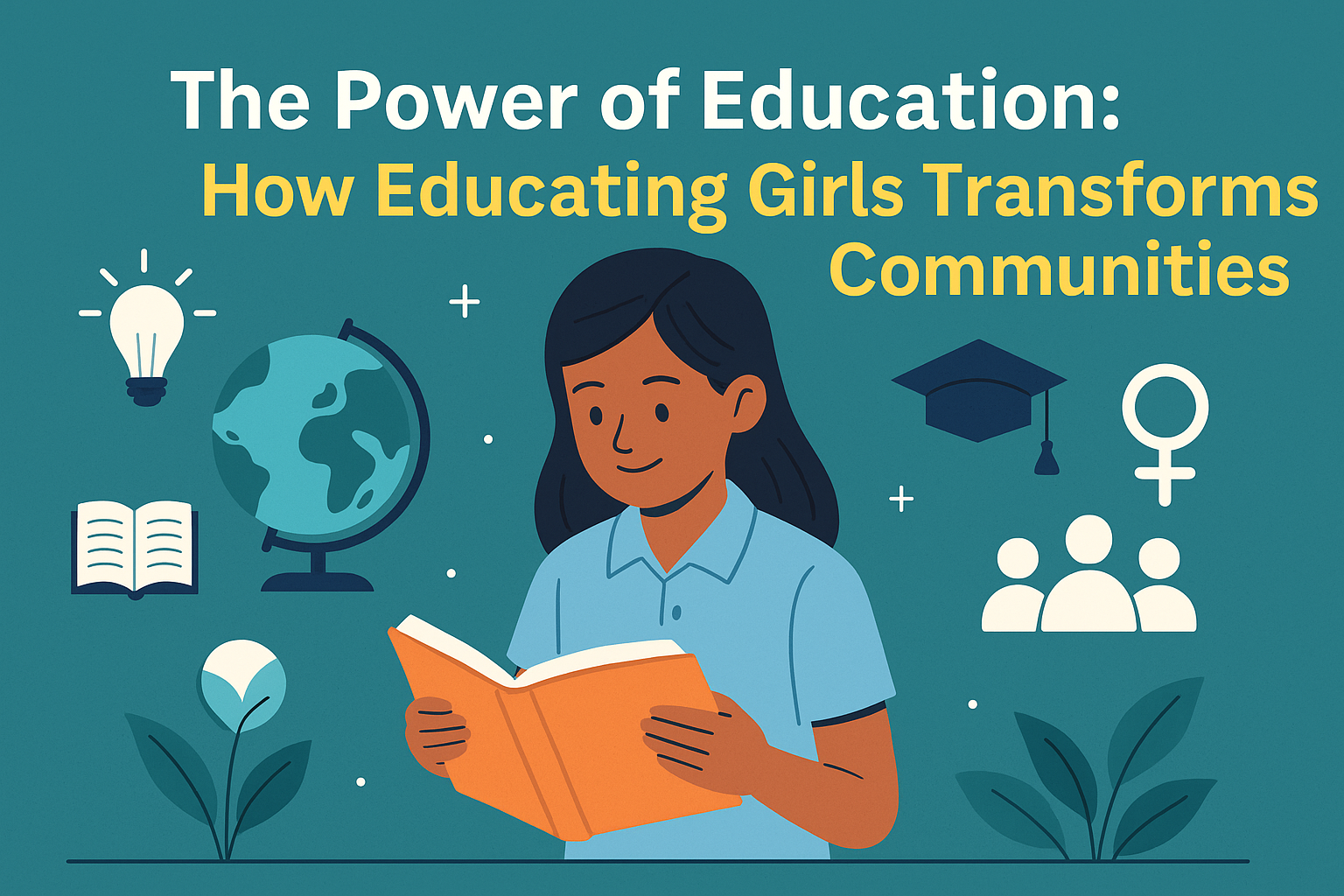In a world that’s moving rapidly toward innovation and progress, one truth remains constant: education is power. And when that education reaches the hands of girls and women, it doesn’t just uplift individuals — it transforms entire communities.
Why Educating Girls Matters
Educating a girl is more than just teaching her to read and write. It’s about unlocking her potential, giving her a voice, and creating a ripple effect that benefits her family, society, and the next generation.
Studies show that girls who receive education are:
- Less likely to marry early
- Healthier and more empowered to make decisions
- More likely to earn higher incomes
- Active contributors to economic and social development
When a girl stays in school, the likelihood of her children being educated increases dramatically. She becomes a pillar of strength and knowledge, raising healthier families and contributing to the prosperity of her nation.
The Impact on Communities
Educated women invest in their families and communities. According to UNESCO, a single year of primary school can increase a girl’s wages by up to 20%, while a year of secondary education can increase it by 25%.
These women are:
- More likely to participate in civic life
- Advocate for their rights and the rights of others
- Raise children with values of equality and ambition
- Influence policy-making and local governance
In essence, an educated girl leads to an empowered society.
Barriers Still Exist
Despite progress, millions of girls globally — and particularly in developing countries — still face barriers to education:
- Poverty
- Cultural norms
- Child marriages
- Lack of infrastructure
- Gender-based violence
These challenges continue to silence brilliant minds and dim futures. But every time a girl is supported through school, another barrier is broken.
How Can We Help?
- Support NGOs and initiatives focused on girls’ education.
- Sponsor a child’s education through credible platforms.
- Advocate for policy changes that promote girls’ rights.
- Encourage community-level dialogues about the importance of education.
Most importantly — talk about it. Share it. Act on it.

